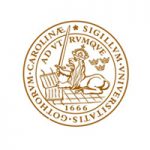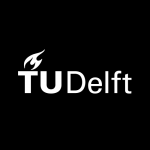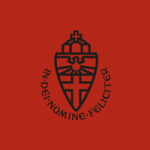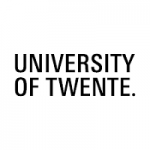项目介绍
Lund University was founded in 1666 and is repeatedly ranked among the world’s top universities. The University has around 47 000 students and more than 8 800 staff based in Lund, Helsingborg and Malmö. We are united in our efforts to understand, explain and improve our world and the human condition.
Lund University welcomes applicants with diverse backgrounds and experiences. We regard gender equality and diversity as a strength and an asset.
Currently, the project includes two employees, one senior lecturer, one researcer and a doctoral student from the department of nuclear- and particle physics at the Department of Physics in Lund. The Lund University team is responsible for the design of the beamline, Time Projection Chamber and detector simulation.
Work duties
The HIBEAM/NNBAR collaboration proposes a two-stage program of experiments at the European Spallation Source (ESS) in Lund to conduct high-precision investigations into neutron conversion across various baryon number violation (BNV) channels. The program addresses key open questions in modern physics, such as the origin of the observed matter-antimatter asymmetry and the nature of the ‘missing matter’ in the Universe, commonly referred to as ‘dark matter’.
Critical to the project is the in-house infrastructure and capability for high-precision magnetic control systems. The primary duty of the Ph.D. student will be to simulate and develop a prototype of the HIBEAM magnetic structure. The prototype will be assembled and tested at the ESS and will be used for initial axion-like particle searches at the ESS.
The responsibilities of the student will include the simulation of this infrastructure, its construction, testing, and the analysis of data from these experiments. The project will be carried out at the ESS and Lund University The Ph.D. position is funded by the Swedish Foundation for Strategic Research.
The main duties of doctoral students are to devote themselves to their research studies which includes participating in research projects and third cycle courses. The work duties can also include teaching and other departmental duties (no more than 20%).
Entry requirements
Admission requirements
A person meets the general admission requirements for third-cycle courses and study programmes if he or she:
- has been awarded a second-cycle qualification, or
- has satisfied the requirements for courses comprising at least 240 credits of which at least 60 credits were awarded in the second cycle, or
- has acquired substantially equivalent knowledge in some other way in Sweden or abroad.
A person meets the specific admission requirements for third-cycle studies in Physics if he or she has:
- passed an independent project (e.g.degree project) of at least 30 credits in a relevant subject
Equivalent knowledge acquired through corresponding programmes will be assessed individually. In order to enable interdisciplinary initiatives and important specialisations in certain areas, students with qualifications in subjects other than Physics may be considered for admission.
Finally, the student must be judged to have the potential to complete the programme.
Additional requirements:
- Very good oral and written proficiency in English.
- Basic knowledge of neutron physics
Other assessment criteria:
- Experience with neutron transport code such MCNP/PHITS
- Experience with detector simulation code like GEANT4
Basis of assessment
Selection to postgraduate studies is based on the expected ability to perform well in the studies. The evaluation of the ability to perform well is based primarily on the results of studies at the basic and advanced levels, in particular:
- Knowledge and skills relevant to the thesis project and the subject of the study.
- An assessment of ability to work independently and to formulate and tackle research problems.
- Written and oral communication skills
- Other experience relevant to postgraduate studies, such as professional experience.
Consideration will also be given to good collaborative skills, drive and independence, and how the applicant, through his or her experience and skills, is deemed to have the abilities necessary for successfully completing the third cycle programme.
Terms of employment
Only those admitted to third cycle studies may be appointed to a doctoral studentship. Third cycle studies at LTH consist of full-time studies for 4 years. A doctoral studentship is a fixed-term employment of a maximum of 5 years (including 20% departmental duties). Doctoral studentships are regulated in the Higher Education Ordinance (1993:100), chapter 5, 1-7 §§.
Instructions on how to apply
Applications must be written in Englishand include a cover letter stating the reasons why you are interested in the position and in what way the research project corresponds to your interests and educational background. The application must also contain a CV, degree certificate or equivalent, and other documents you wish to be considered (grade transcripts, contact information for your references, letters of recommendation, etc.).
The Faculty of Science conducts research and education within Biology, Astronomy, Physics, Geosciences, Chemistry, Mathematics and Environmental Science. The Faculty is organized into eight departments, gathered in the northern campus area. The Faculty has approximately 1500 students, 330 PhD students and 700 employees.
The Department of Physics is one of Lund University’s largest departments with approximately 400 employees. The department is shared between the Faculty of Science and Faculty of Engineering. At the department there are seven research divisions and a number of major research centra. The research at the department covers a wide range of modern physics.
www.fysik.lu.se/en/
联系方式
电话: +46 (0)46 222 0000相关项目推荐
KD博士实时收录全球顶尖院校的博士项目,总有一个项目等着你!






